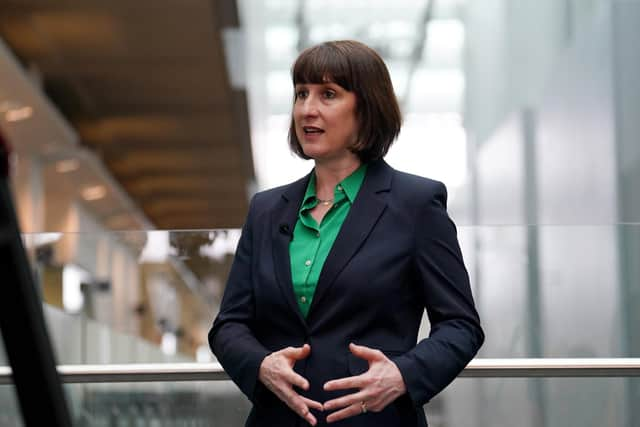Why I am more upbeat that Labour is on the right path when it comes to regional policy - Simon French
At the launch of the party’s local election campaign in Birmingham last month, Keir Starmer noted that “Levelling up is a good ambition for Britain”. It is hard to disagree. For civic leaders and business chiefs across the North of England frustrated with constant rebrands and a lack of continuity this is probably a good thing. But strip away the shared title and have Labour unveiled anything different to what the Conservative have offered over the last 14 years?
The first thing to say is the Shadow Chancellor, Rachel Reeves, is putting a lot of weight on Labour simply not being as chaotic as the Conservatives. In doing so she believes – not unreasonably – this will give the Treasury more latitude to fund public services and seed investment. Reeves’ recent Mais lecture on ‘Securonomics’ referenced numerous intellectuals, academics, and political heroes. Whilst this marks her out as thoughtful and credible, her basic pitch is that the whole of the UK won’t have to deal with the fallout of Brexit, Covid-19, and Liz Truss’ Mini Budget. If the budgetary constraints faced by local authorities across the North of England are to ease, then Reeves is banking on economic growth and the cost of borrowing responding favourably to a more stable hand on the tiller.
Advertisement
Hide AdAdvertisement
Hide AdSecuronomics also pays homage to the idea of devolved control over key enablers of economic growth. A Labour government says it will combine and devolve adult education budgets, overseen by a new national institution: Skills England. Organisational design will be essential if this is to avoid the frustrating deadweight loss from regional leaders bidding for funds from a central institution. There is new legislation planned too with a new ‘Take Back Control’ act promising new powers for mayors over transport, skills, enterprise, energy, planning and rejuvenating high streets. Thought has been given to the optimal scale of government control – not too big, not too small – particularly in areas such as planning.


For me the real signal of change is the fact the Conservatives have always been squeamish about an active industrial strategy and an active state. They set up the Industrial Strategy Council in 2018 and within three years abolished it. The chair of that short-lived group, the Yorkshireman Andy Haldane, the former chief economist at the Bank of England, is one of two reasons I am more upbeat that Labour are on the right path.
The other is Lancastrian and chair of investment firm Northern Gritstone, Lord Jim O’Neill. These two are the serious people the Labour Party have chosen to place at the centre of its thinking on regional policy and boosting investment across the North of England. Both are passionate believers that only true devolution of powers – both legislative and financial – are the route to spreading prosperity across all regions of the UK.
Oppositions often talk a good game on devolved control in opposition and then go lily-livered when in power. This is undoubtedly a risk on the other side of the General Election. These are two advisers who won’t hang around if that’s the path taken by Starmer and Reeves.
Simon French is managing director, chief economist and head of research at investment bank Panmure Gordon, which has an office in Leeds.
Comment Guidelines
National World encourages reader discussion on our stories. User feedback, insights and back-and-forth exchanges add a rich layer of context to reporting. Please review our Community Guidelines before commenting.